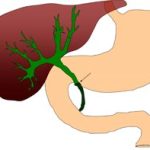Vasectomy in Iran
Vasectomy is a form of male birth control that cuts the supply of sperm to your semen. It’s done by cutting and sealing the tubes that carry sperm. Vasectomy has a low risk of problems and can usually be performed in an outpatient setting under local anesthesia. Before getting a vasectomy, you need to be certain you don’t want to father a child in the future. Although vasectomy reversals are possible, vasectomy should be considered a permanent form of male birth control.
Vasectomy cost in Iran
The cost of vasectomy in Iran is significantly different from other countries. This difference is due to the large number of applicants and hospitals that perform vasectomy. The cost of a vasectomy in Iran is about $ 500, while the cost of this surgery is $ 4,500 in the United States, $ 2,300 in Europe, $ 1,900 in Thailand and $ 2,300 in Turkey. This large difference in cost, despite the high quality of services, is not ignorable!
How is the procedure of vasectomy in Iran?
Vasectomy in Iran is a relatively rapid and painless surgical procedure. The tubes that carry sperm from the man’s testicles to his penis are cut, and then blocked or closed by heat. In most cases, you will be able to return to your home on the same day. This procedure usually lasts 15 to 30 minutes. You should wear loose, comfortable clothing.
Most vasectomies are performed under local anesthesia. This means that only the scrotum and testicles will be anesthetized, and you will be alert at the time of the procedure. You will not feel any pain, although you may feel a little uncomfortable. General anesthesia may be required in rare cases meaning that you will be asleep during the procedure. General anesthesia can be used if you are allergic to a local anesthetic or have a history of fainting easily. However, most people need only local anesthesia.
There are two types of vasectomy:
- In the conventional vasectomy, the doctor will make one or two small incisions in the scrotum (the skin sac that surrounds your testicles) to access the efferent vessels on the scrotum using a scalpel (a surgical knife). A small portion of the efferent vessels will be cut and removed. The urologist can close the ends of the arteries with a catheter and suture the incision. The doctor will then perform the same operation on another testicle through another incision in the scrotum or the previous incision. For both testicles, when the efferent vessels are closed, the doctor will use a few stitches or skin adhesives to close the incisions on the scrotum.
- The other type is called no-scalpel vasectomy, and it is a modern technology that is now commonly used. In this type of vasectomy in Iran, a small hole is made on one side of the scrotum. The surgeon finds the vas deferens and pulls it out of the hole. The vessel is then cut and a small part of it will be removed. The end of the efferent vein will be burned or knotted and the vessel will be returned to its place. This process will then be repeated on the other testicle. Since the holes are very small, no stitches are needed.
Your doctor will choose the best vasectomy technique for you. After vasectomy in Iran, many people return home the same day and fully recover in less than a week.
How effective is vasectomy in Iran?
Vasectomy is one of the most effective birth control methods. Pregnancy is considered to occur on average in 15 to 20 in 10,000 couples within a year of vasectomy, compared to 1,400 in 10,000 when the contraceptive method relies on condoms, and 500 with an oral contraceptive.
However, sterilization is not obtained immediately after the operation, because sperm may remain in the various channels. It is generally considered that sterilization is obtained after about thirty ejaculations, or after 3 to 4 months. After the procedure, it is therefore essential to use another method of contraception until the absence of sperm in the semen is confirmed by analysis.
As soon as there is no longer any sperm in the semen fluid, it is possible to give up the other contraceptives. It is considered that the vasectomy is irreversible, that is to say, that the vasectomized man will not be able to have any more children during his life.
















